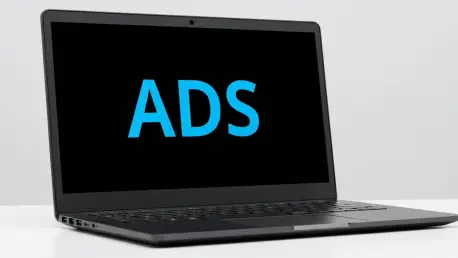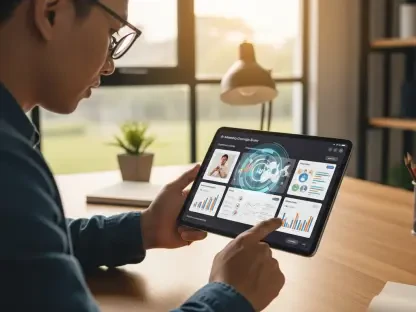In an era where digital content is often cluttered with intrusive advertisements, a notable shift has emerged in the online media landscape, as one organization has taken a bold step to prioritize user experience over easy revenue. Imagine navigating a website only to be bombarded by pop-ups, auto-play videos, and sluggish loading times—an all-too-common frustration for many internet users. This annoyance has prompted the Legal Insurrection Foundation (LIF), a non-profit entity, to make a significant decision: completely eliminating display advertising from its online platforms. This move, while financially challenging, reflects a deeper commitment to accessibility and reader satisfaction. By transitioning to a donor-supported model, LIF is not only addressing technical grievances but also redefining how content can be delivered without compromising on principles. This development raises important questions about the sustainability of free online content and the evolving relationship between creators and their audiences.
Shifting Away from Ad Revenue
Technical Challenges of Display Ads
The decision to abandon display advertising stems from persistent technical issues that have long plagued the websites managed by LIF. For years, these platforms struggled with ads that significantly slowed down page loading times, creating a frustrating experience for visitors. Beyond mere inconvenience, there were more severe problems, such as malicious ads that occasionally hijacked users’ devices, posing security risks. Despite numerous attempts to mitigate these issues through various ad platforms, the cycle of troubleshooting proved exhausting and ultimately ineffective. This ongoing battle with unreliable advertising technology highlighted a critical need for a different approach, one that would prioritize the integrity of the user experience over the allure of passive income. The frustration felt by readers was a key driver in reevaluating the role of ads on these sites, leading to a broader discussion on how digital content should be presented in a way that respects the audience’s time and safety.
Impact on User Experience
Beyond the technical drawbacks, display ads often disrupted the core mission of providing seamless access to information. Visitors to LIF’s platforms frequently encountered intrusive elements like pop-ups and auto-play videos that detracted from the content they sought. Such distractions not only annoyed readers but also diminished the credibility of the sites as trusted sources of information. This growing dissatisfaction mirrored a wider trend among internet users, many of whom have turned to ad blockers to reclaim control over their browsing experiences. Recognizing this shift in user behavior, LIF opted against employing aggressive tactics to bypass blockers, choosing instead to align with audience preferences. The emphasis on creating a cleaner, more enjoyable digital environment reflects a deliberate move to rebuild trust and foster a more positive relationship with readers, even if it means forgoing a previously reliable stream of revenue.
Embracing a Donor-Supported Model
Financial Implications of the Change
Removing display ads has introduced a significant financial challenge for LIF, as it meant losing a source of passive income that required minimal effort to maintain. This “do-nothing” money once helped cover operational costs, but its absence now creates a noticeable funding gap. To address this shortfall, the organization has turned to its readership for support, leveraging its status as a 501(c)(3) non-profit to accept tax-deductible donations. The appeal for contributions emphasizes the importance of even small, recurring monthly donations to provide a steady flow of resources. This transition highlights the harsh reality that maintaining free access to content comes at a cost—one that must now be shouldered by willing supporters. The shift to a donor-driven model is a gamble, relying on the goodwill of an audience that values the content enough to contribute financially to its continuation.
Commitment to Free Access
At the heart of this strategic pivot lies a steadfast dedication to keeping content freely accessible to all. LIF has explicitly rejected alternative revenue models such as premium subscriptions or paywalls that would restrict access for some users. This stance is rooted in a traditional blogging ethos that champions open information sharing, a principle that remains central to the organization’s mission. While acknowledging that “free” content is never truly without cost, the focus has shifted to ensuring that financial barriers do not exclude anyone from engaging with the material. By soliciting donations, LIF aims to bridge the gap left by ad revenue while preserving the accessibility that defines its platforms. This approach not only reflects an ethical choice but also serves as a test of whether a community-driven funding model can sustainably support independent media in an ad-dominated digital world.
Looking Ahead to Sustainable Solutions
Reflecting on the journey, LIF’s decision to eliminate display ads was driven by a blend of practical necessity and ethical conviction. The persistent technical failures and negative user feedback surrounding advertisements necessitated a bold departure from the status quo. Financially, the loss of passive income was a significant hurdle, yet the move to a donor-supported framework under a non-profit structure offered a viable path forward. Ethically, the commitment to free access stood as a guiding light throughout the transition. Looking to the future, the focus must remain on building a robust base of recurring contributions to ensure long-term stability. Engaging the audience through transparency about financial needs and the impact of their support will be crucial. Additionally, exploring innovative ways to diversify funding—without compromising core values—could provide further resilience. This pivotal moment serves as a reminder that prioritizing user trust and accessibility can redefine how digital content thrives in a competitive landscape.









